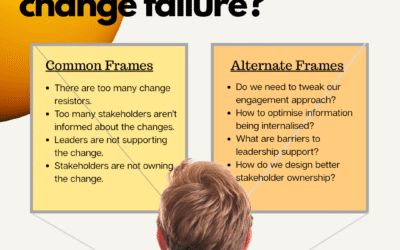As the global landscape continues to evolve, so too does the field of change management. The year 2024 promises a shift in the way organizations approach change, driven by a combination of economic factors, continued technological advancements, and the ever-increasing need for adaptability. In this article, we explore the background factors influencing the upcoming changes, and delve into seven key predictions that are set to reshape the realm of change management in the coming year.
Background
Inflation Continue to Drop: A Ray of Economic Hope
One of the pivotal factors shaping the economic landscape in 2024 is the anticipated drop in inflation. After grappling with economic uncertainties, organizations can breathe a sigh of relief as the pressure from rising costs eases. This economic respite paves the way for strategic investments and initiatives, creating a conducive environment for change.
Avoiding Recession: Building Resilience Through Change
The specter of recession has loomed large in recent years, casting a shadow on organizational stability. However, as we step into 2024, the concerted efforts to avoid recession is forecasted to have paid off. Organizations have become more resilient, honing their ability to weather economic storms through strategic change initiatives. This backdrop sets the stage for a transformative year in change management.
Key Predictions
- Agile Change as Business as Usual
In 2024, the concept of Agile Change is no longer a mere ‘work in progress’ but rather an integral part of Business as Usual (BAU). Organizations have recognized the need for agility in the face of rapid change, and Agile change methodologies have transitioned from experimental to foundational. This shift represents a change in mindset, emphasizing iterative processes, collaboration, and responsiveness to evolving circumstances. After more than 10 years of agile project methodology in the market place, agile change practices are starting to become ‘the norm’.
- The Rise of Adaptive/Hybrid Change Models
Building on the previous point, agility applies beyond at an ‘intra-methodology’ perspective, but also how change approaches and methodologies need to be mixed and matched to work.
The increasing pace of change demands a more flexible approach from change practitioners. The dichotomy between structure and flexibility, innovation and process-focused strategies, gives rise to adaptive and hybrid change models. The emergence of terms like “wagile” (a fusion of waterfall and agile) underscores the need for a balanced approach that combines the best of both worlds. Organizations must strike a delicate balance between structure and flexibility to navigate the complexity of modern change initiatives.
For example, in regulated business functions there may need to be quite rigid planning of exactly when the changes must take place as well as the level of consultation and engagement required. However, the actual design of different engagement, positioning and employee involvement strategies may be tested in an iterative way.
- Expanding Skill Sets for Change Practitioners
To meet business needs change practitioners will need to have a broader range of skills beyond ‘people skills’. In 2024, the demand for change professionals with a broader skill set encompassing strategic thinking, digital/data literacy, and business acumen will continue to be on the rise. As change initiatives become more complex, practitioners must equip themselves with multifaceted skills to address the diverse challenges that emerge during the change process.
For example, stakeholders are increasingly looking for data for reporting purposes to get a clearer sense of how changes are tracking. Beyond sentiments and opinions, stakeholders are looking for adoption indicators as well as precise indications of the nature of impacts across the employee population.

- The Ascendance of Change Portfolio Management
Change portfolio management will continue to gain increasing visibility and importance in 2024. Organizations are recognizing the need to manage change initiatives collectively, aligning them with strategic objectives. The holistic oversight provided by change portfolio management enables organizations to prioritize, monitor, and evaluate change initiatives in a comprehensive manner, ensuring that resources are optimally allocated for maximum impact.
Whilst stakeholders may not be clear of the differences between transformation, portfolio management and change portfolio management, they are clearer of the benefits required in managing people impacts, against the need to maximise business performance and change adoption.
- Leveraging Change Data for Informed Decision-Making
In the evolving landscape of change management, data is no longer just a nice-to-have; it’s a necessity. In 2024, the norm becomes leveraging change data to make informed decisions. Organizations recognize the value of data analytics in understanding the impact of change, identifying patterns, and proactively addressing challenges. This data-driven approach enhances the efficacy of change initiatives and provides a foundation for continuous improvement.
It is no longer that the expectation for data-led decision making rests in project functions such as technical development, business analysis, testing and user-experience. Change management teams are also expected to demonstrate the impact of their work through data.
- Increasing Use of Software in Change Implementation
The leverage of software in change implementation should see an uptick in 2024, along with general increase in software usage rates in organisations. Organizations are leveraging technology to streamline and enhance various aspects of the change management process. From change project management tools, change measurement platforms, as well as change portfolio management tools the role of software can accelerate the pace of change initiatives and supports the realisation of benefits.
- AI for Change: From Wait-and-See to Full Adoption
Artificial Intelligence (AI) for change management is no longer a ‘wait-and-see’ proposition; it’s a reality in 2024. In 2023 a lot of users have sat on the fence as others argue about the risks in using AI and data security. The launch of Microsoft Co-pilot and the continued adoption of Chat GPT 4 signal a paradigm shift in how organizations approach AI. Users will over time be used to asking a chat bot, using prompts to form analysis and other AI features to augment their work. Advanced AI change tools can also assist in decision-making, predictive analytics, and even virtual facilitation, revolutionizing the efficiency and effectiveness of change processes.
In addition, there will be significant interest in change management tools that have incorporated AI features, from data and trend analysis, risk analysis to recommendations on change approaches.
As organizations navigate the complexities of 2024, change management emerges as a critical linchpin for success. The predictions outlined in this article reflect an emerging shift in the approach to managing change, from the integration of Agile methodologies to the widespread adoption of AI. Change practitioners must equip themselves with a versatile skill set to thrive in this dynamic environment, where strategic thinking, digital literacy, and adaptability are paramount. As we stand on the cusp of a transformative year, organizations that embrace these predictions are poised not only to weather the winds of change but to harness them for sustained success.






